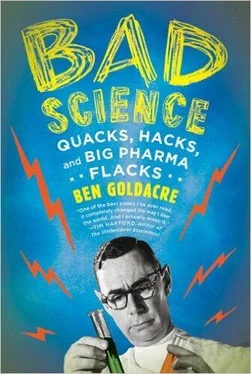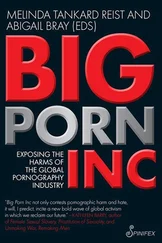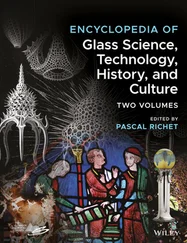Bad Science: Quacks, Hacks, and Big Pharma Flacks
We buy into the junk science myths used to sell health and beauty products.
Each and every day we are bombarded by advertisements for products that promise to improve our lives in some way. All too often these products are explained in complex and seemingly indisputable scientific language.
We don’t have to do much digging to find examples of this. Just think of the health and beauty industry with their claims of how their products “purify” us and make us look more attractive.
For example, there is a detox foot bath called Aqua Detox , which purports to cleanse your body of “toxins,” evidenced by the bath water turning brown after the product is used.
And then there’s an advertisement for a face cream made from “specially treated salmon roe DNA,” which assumes that salmon DNA somehow nourishes and revitalizes your skin.
Surely the brown water left in the detox bath is the toxins our feet leave behind, right? Wrong. These grand scientific claims are based on absolutely no evidence whatsoever!
Upon closer inspection, the brown color of the water has nothing to do with your feet, but is merely the rust coming from the iron electrodes when the device is switched on.
And that salmon skin cream? DNA is simply too large to be absorbed by skin but even if it wasn’t, fish DNA – i.e., alien DNA – isn’t beneficial for your cells, and certainly not beneficial for you . If you really want to reap the benefits of nutrient-rich salmon, you have to actually eat and digest certain parts of it, not rub it on your skin.
So how do these companies get away with it? In essence, they rely on our misunderstanding of science: we tend to think that it’s just too complicated for us. Better to leave that “science stuff” to the people in lab coats, right?
We therefore easily accept the scientific “facts” presented to us without questioning them, leaving advertisers an irresistible opportunity to exploit our ignorance and trust in order to sell their wares
Many nutritionists’ claims are fraudulent and misrepresent evidence.
How many multivitamins do you take every day in the hope that they will make you smarter or healthier, or even prevent some terrible disease? Many people have added multivitamins to their morning routine, but how much actual scientific evidence demonstrates their value?
Not much. In fact, the assertions made by nutritionists often lack scientific rigor, and therefore don’t stand up to scrutiny.
One common theme found in nutritional claims is overextrapolation , when a finding based on a small-scale trial, perhaps in a laboratory, is deemed applicable on a larger scale – e.g., for all humans. For example, the academic nutritionist Patrick Holford, lauded by the press as an “expert,” once claimed that vitamin C is more effective at fighting HIV than AZT, the prescribable anti-HIV drug.
How did he come to this conclusion? He cited a single paper that showed that when some vitamin C was injected into HIV-infected cells in a petri dish, it reduced the levels of HIV replication. The study didn’t even mention AZT, nor had there been human trials!
What’s more, false claims like this one can actually cause treatment to be withheld from sick people. For example, vitamin salesman Matthias Rath helped influence the government of South Africa – where a quarter of the population has HIV – to withhold anti-HIV drugs and promote multivitamins, including his own.
He claimed they would reduce the risk of AIDS by 50 percent, and that they were safer and more effective than any anti-HIV drug, basing his claims on a Harvard study involving a thousand HIV-infected Tanzanian women.
The study showed that low-cost generic vitamins – or a better diet – could be used to push back the start of anti-HIV drug regimens in some patients, but Rath distorted the results, claiming that vitamins were the “superior” cure and even adding that anti-HIV drugs worsened immune deficiencies.
These lies had a human cost: one study estimated that if the South African government had opted to give out anti-HIV drugs during this period instead, they could have prevented 343,000 deaths.
Some pharmaceutical companies abuse the way science is conducted and reported.
How reliable are drug trials? You probably think (and hope!) that the results are fair and accurate. Unfortunately, they aren’t always as honest as we’d like them to be.
This is partly because drug trials are extremely costly, and often financed by the drug companies themselves. In order to bring a drug to market, it must surmount a number of obstacles: first, it must pass the initial trials to determine safety, then trials to determine efficacy, and finally a larger-scale trial where it is measured against a placebo or comparable treatment. The total cost is close to a staggering $500 million on average.
Because public entities simply can’t afford to pay that much, 90 percent of clinical drug trials are conducted or commissioned by pharmaceutical companies. These companies therefore have a massive – and some would say unfair – influence over what is researched, and how it is understood and reported.
One outcome is that results of positive trials are published more often than those of negative trials. This is called publication bias , and unfavorable results are often buried.
One example of this is drug companies hiding data that showed that their antidepressant SSRIs were no more effective than a placebo. In fact, there have even been cases in which companies publish the results of a positive trial more than once, to make it seem as if there were corroborating trials supporting their results! For example, one anesthetist compared trial data for a nausea drug only to find the same, slightly reworded results in several studies and journals, thus inflating the drug’s apparent efficacy.
And even when drugs are finally brought to market, drug companies can bury risks or side effects. For example, even though SSRIs are known to cause anorgasmia – i.e., the inability to reach an orgasm – researchers simply didn’t mention it on the list of side effects.
Even if you read the label carefully, you cannot always know how a drug might seriously affect your life.
Now that we have explored some of the ways in which we can be tricked by bad science, the following blinks will help you to determine what qualifies as “good science.”
Placebos illuminate the way we heal ourselves.
No one understands why a placebo – a pill containing only sugar – can be used to treat a large range of conditions, such as tooth pain and angina. But somehow they do work.
In part, it is the “theater” of placebos that is crucial to their ability to help our bodies heal. For instance, details such as packaging, price and color all affect our expectations – and thus the outcome – of the treatment itself.
Studies have shown, for example, that a dose of four placebo pills performs better than two, and an injection performs better than a pill. Furthermore, pink placebo pills can make you feel motivated while blue ones relax you.
In another study on the treatment of narrowed arteries, a “sciencey-looking” laser catheter that administered no actual treatment was almost as effective as the real treatment!
The secret to placebo treatments is that the patient feels like they are being treated, and that’s all it actually takes to affect results. Because of this phenomenon, real treatments can be compared against placebos to determine their efficacy.
Читать дальше
Конец ознакомительного отрывка
Купить книгу












